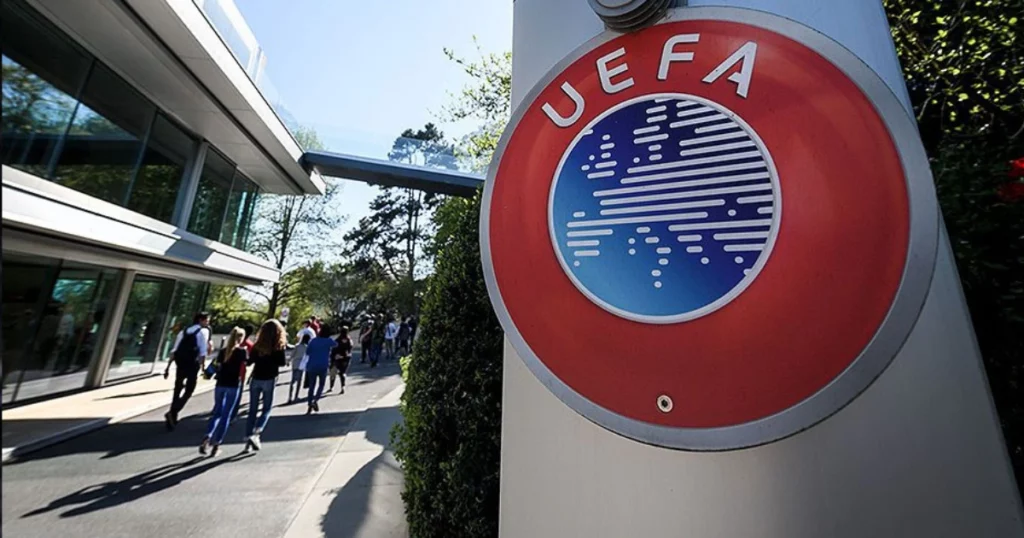Has financial imbalance permanently damaged European football?
European football has reached a point where there is a big divide between the big clubs and small clubs, but in the past years, the big club’s money power has gone beyond limits putting an end to the hopes of growing teams in Europe.
In the last 20 years ago, Porto was the only surprise package to find success in the UEFA Champions League, at the same time, Bournemouth finished below Hartlepool United, Port Vale, and Tranmere Rovers in the third tier of English football.
The balance of power in European football has seen huge shifts since then, inclining more towards the big clubs.
Bournemouth replaced Solanke with Brazilian international Evanilson from Porto for a club-record £40 million. The Solanke deal with Tottenham was one of this summer’s costliest, largely crediting the management to the modest club’s rise from the fourth division to the Premier League in just 12 years.
But this is the case only in the Premier League and not the rest of Europe. Bournemouth spent 117 years of its 125-year history below England’s top flight with a stadium capacity of over 11,000. At the same time, Porto conquered Portugal 30 times and Europe twice with global talents like Deco, Casemiro, and Pepe could not have the threshold of Bournemouth and sold their most prized asset.
Regarding the scenario, Christina Philippou, an associate professor in sports finance told theScore.”From a European perspective, it does seem like there is an increasing gulf between the Premier League and other leagues,”
This transfer market was one in which Premier League clubs overpowered European powerhouses, where even Ipswich Town, from England’s second tier of last term, outspent 31 of the 36 clubs competing in this new Champions League’s league.
Moreover, 58 clubs from Bundesliga, La Liga, and Serie A were completely overtaken by 20 Premier League teams who spent around £2 billion this summer.
The effect of the boom
The Premier League’s master plan to sell their broadcasting rights for a cheap price overseas rapidly grew with time with the increase of English football. Moreover, the Premier League has enjoyed “continual growth” since around the mid-2000s with the highest broadcasting income at $3.8 billion this year. La Liga sits in second with $2 billion.
Unlike the rest of Europe, Premier League clubs survive financially without dependency on the Champions League, Europa League, or Conference League.
Average revenue per club in 2022-23
| League | Figure |
|---|---|
| Premier League | €348M |
| Bundesliga | €213M |
| La Liga | €177M |
| Serie A | €143M |
| Ligue 1 | €119M |
(Courtesy: Deloitte)
“(The clubs) are kind of joint economic partners,” Plumley said.
“You don’t really get that in a lot of other businesses because they’re all trying to outdo each other: a retail business is going to benefit if another retail business goes out of business. That doesn’t ring true in football.”
Director of IFK Goteborg Hakan Mild and former midfielder, has seen the big leagues have direct influence. This creates more “working opportunities” for players and coaches at the larger clubs.
Adding to it the deal in signing Malick Yalcouye of Brighton for the €7-million mark from Goteborg shows the financial prowess of a mid Premier League club.
“We can use that money to develop the club,” Mild told theScore. “(We can help) our young players, the boys and girls, to become better footballers because we have the possibility to put money in our facilities.”
These factors create a significant difference in the development of clubs from the other European Leagues
Has UEFA become powerless in European football?

The solution to the problem could be simple, just like Philippou said. But, there should be a fairer allocation of money, throughout Europe ensuring the top clubs don’t take the big part of the cake. This strategy could be implemented by UEFA in their competitions, for better results.
“(Give) smaller leagues better chances of getting in and competing,” Philippou suggested. “That way, you could boost your audiences and help develop football across the continent, as opposed to just focusing on the larger leagues, which is effectively what we’re seeing football move toward.”
And also, there is a little more UEFA can do to bring equal pay in European football.
“They can’t in many ways because the leagues are self-governed,” Plumley told theScore. “They are the governing body of European football, and they have a role to play in the member associations, but they can’t tell the Premier League, as an example, how to split their broadcasting money.”
Efforts by UEFA and domestic leagues to manage club finances, including Financial Fair Play (FFP) and profitability rules, have their limits, but with UEFA’s newest rule, clubs are restricted in spending 80% of revenue on transfers and wages, while in the coming season its drops to 70% next season for the betterment of European football.
While the ratio limits expenditure to sustainable levels, it reinforces the competitive imbalance. Wealthier clubs especially attract higher revenues outspending others, making it difficult for smaller teams to even be part of the race. Though La Liga has a spending cap based on past and projected income, which helps manage finances better, it still does not stop wealthier European teams from gaining an edge. However, Plumley believes it will continue for 5-10 years unless something drastic happens to change the landscape of European football.
“The only thing that really shakes it up is a new governance structure within leagues or across the ecosystem that really changes what’s there and almost rips it up and starts again,” Plumley added. “And I just don’t think we’re in that space.”
Also Read:
Real Madrid keeping tabs on Rodri with uncertainty over Manchester City’s 115 charges
Chelsea suffer fresh blow as Reece James’ return gets postponed
